Benefits Of Eye Drops: Why It Is Important To Your Eyes
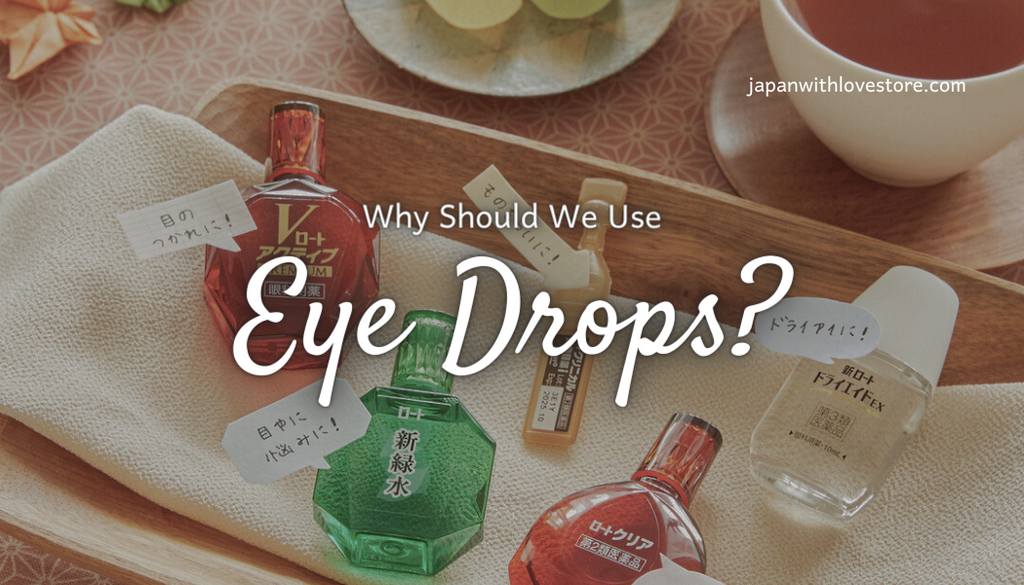
Our eyes are windows to the world. They allow us to experience the beauty and wonder around us. But just like any other vital organ, our eyes need proper care to work at their best. Healthy eyes not only contribute to clear vision but also play a role in activities like maintaining balance and regulating sleep patterns.
Fortunately, maintaining eye health doesn't require complicated routines. Eye drops offer a convenient and effective way to address a variety of eye concerns. They keep your eyes comfortable and function optimally.
In this blog, Kiichin will walk you through the benefits of eyedrops, shedding lights on how eyedrops are important to your eye care, and how to use them properly.
1. Benefits of eye drops
1.1. Acting as artificial tears to lubricate and hydrate your eyes
Have you ever felt like your eyes are gritty, burning, or simply uncomfortable? These are all signs of dry eyes, a common condition that occurs when your eyes don't produce enough tears or the quality of your tears is poor. This lack of moisture can lead to irritation, blurred vision, and a constant scratchy feeling.
One of the eye drop benefits is acting as artificial tears to rescue your eyes in these situations. They replenish the moisture layer on your eye's surface, mimicking the natural lubrication provided by tears. This not only soothes discomfort but also helps maintain clear vision and overall eye health.
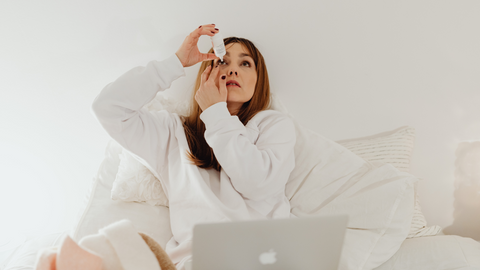
1.2. Treating allergies, redness, and glaucoma
Eye drops are more than just lubricants; they can also be powerful tools for treating various eye conditions. Here's a glimpse into how specific types of eye drops target different problems:
- Allergies: Itchy, red, and watery eyes are classic allergy symptoms. Antihistamine or mast cell stabilizer eye drops can be lifesavers, reducing inflammation and histamine release triggered by allergens like pollen or dust.
- Redness: Whether caused by irritation, fatigue, or even broken blood vessels, eye drops formulated with vasoconstrictors can help reduce redness by constricting blood vessels in the eye.
- Glaucoma: This chronic condition damages the optic nerve. While not a cure, specific glaucoma eye drops can help regulate pressure within the eye, potentially slowing down the progression of the disease.
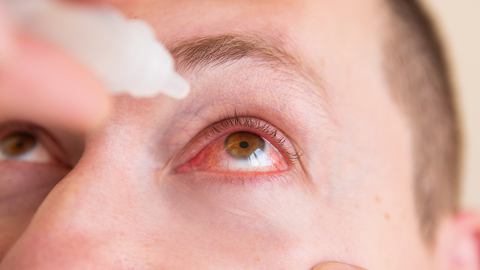
1.3. Supporting for contact lens wear or post-surgical healing
Other benefits of eye drops are playing a supportive role in various aspects of eye care:
- Contact lens wear: Contact lenses can sometimes cause dryness and irritation. Lubricating eye drops can provide much-needed moisture throughout the day, enhancing comfort and lens wearability.
- Post-surgical healing: After eye surgery, doctors often prescribe eye drops to promote healing and reduce inflammation. These drops may contain antibiotics to prevent infection or corticosteroids to reduce swelling.
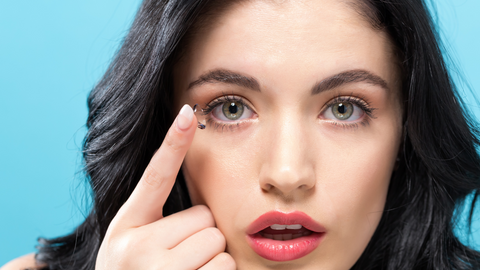
2. Is it good to use eyedrop daily?
Eye drops offer a quick and effective solution for many eye problems, but the question remains: are eye drops healthy and is it good or bad to use daily? Here's a breakdown of eye drops advantages and disadvantages of daily use:
2.1. Benefits of daily use (for certain types)
For some people, daily use of eye drops can be a real blessing. One of siginificant eye drop benefits from lubricating type is to aid individuals with chronic dry eye to feel more relief. These drops, often formulated to mimic natural tears, provide much-needed moisture throughout the day. The key here is to choose preservative-free options if you plan on daily use, as preservatives in some drops can cause irritation with frequent application.
Daily use can also be beneficial with certain medicated eye drops, but only under a doctor's supervision. For example, people with glaucoma may require daily use of specific eye drops to regulate intraocular pressure.
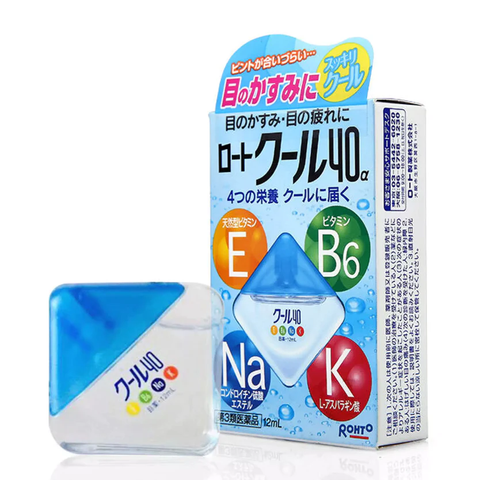
Buy this Rohto Eye Drops Japan now and give your eye the best treatment
2.2. Risks of daily use (for some types)
While convenient, daily use of some eye drops can have drawbacks. Over-reliance on artificial tears can suppress your natural tear production, leading to a dependence on the drops. Additionally, some eye drops, particularly those containing preservatives, can worsen dry eye symptoms with prolonged daily use.
Another concern with daily use is masking underlying conditions. Allergy or redness relief drops may provide temporary comfort, but they can mask a more serious eye problem. If you experience persistent eye issues, daily use of these drops might delay proper diagnosis and treatment.
2.3. Importance of consulting an eye doctor
Before incorporating any eye drops into your daily routine, it's crucial to consult an eye doctor. They can assess your individual needs and eye health to determine if daily use is appropriate. Your doctor can also recommend the right type of eye drops and advise on proper application and potential side effects. By working with your eye doctor, you can ensure you're using eye drops safely and effectively to maintain optimal eye health.
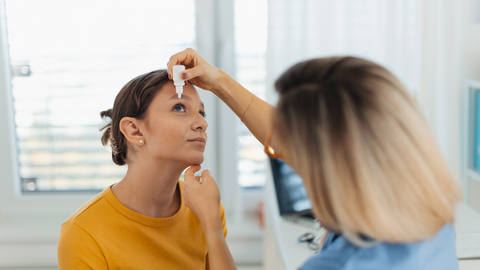
Find our more: Why Should We Use Japanese Eye Drops?
3. How to choose the right eye drops
While there are a wide range benefits of eye drops, it's important to remember they are not a one-size-fits-all solution. If you wonder which drop is good for eyes, you should consult an eye doctor before using any eye drops. They can assess your specific needs and diagnose any underlying eye conditions that might be causing your discomfort. Based on this evaluation, your doctor can recommend the most appropriate type of eye drops for your situation.
Here's a quick breakdown of the different types of eye drops available:
- Lubricating eye drops: These drops are formulated to mimic natural tears and provide moisture relief for dry eyes. They are generally safe for over-the-counter purchases, but consulting your doctor can help determine the best formula for your specific needs.
- Medicated eye drops: These drops target specific eye conditions like allergies, redness, or glaucoma. They require a doctor's prescription and should only be used under their guidance.
- Preservative-free options are available for both lubricating and medicated eye drops. These are particularly beneficial for people with sensitive eyes who experience irritation from preservatives found in some eye drop solutions.
Remember, your eye doctor is your partner in eye care. By working together, you can choose the right eye drops to address your specific concerns and keep your eyes healthy and comfortable.
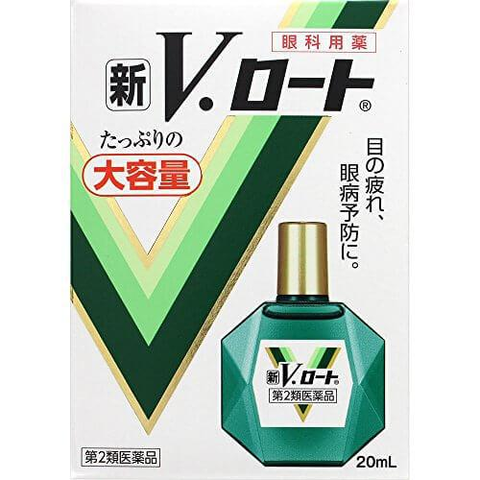
Related Post: Why Should We Use Japanese Eye Drops?
4. How to use eye drops safely and effectively
Eye drops are a valuable tool for eye care, but using them correctly is essential to maximize benefits and minimize risks. Here are some key points to remember to optimize the benefits of eye drops:
- Handwashing is paramount: Before touching your eyes or handling eye drops, always wash your hands thoroughly with soap and warm water. This helps prevent contamination of the drops and your eyes.
- Application technique matters: Tilt your head back slightly and gently pull down your lower eyelid to create a pocket. Apply the prescribed number of drops into the pocket, then close your eye and gently press on the inner corner for a few seconds. This helps prevent the drops from draining out.
- Avoid touching the dropper tip: Don't let the tip of the dropper touch your eye, eyelashes, or any other surface. This can contaminate the solution.
- Mind the dose and frequency: Stick to the recommended dosage and frequency prescribed by your doctor or as indicated on the label. Using more drops than directed won't provide additional benefits and might even cause irritation.
- Be aware of expiration dates: Expired eye drops can be ineffective or even harmful. Always check the expiration date and discard expired drops properly.
- Listen to your body: If you experience any burning, stinging, or worsening symptoms after using eye drops, discontinue use and consult your doctor.
These are simple guidelines that can help you ensure safe and effective use of eye drops to keep your eyes healthy and comfortable.
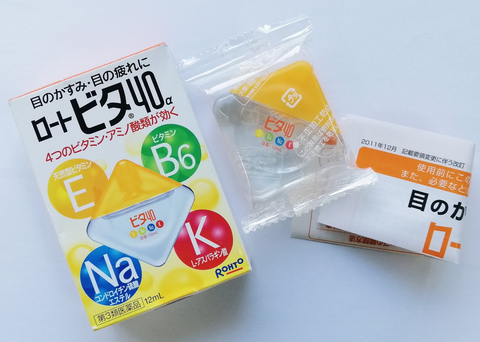
5. Conclusion
Eye drops are a powerful tool for maintaining optimal eye health. We have gone through numerous benefits of eye drops in this post, such as soothing dry eyes, alleviating allergy symptoms, treating various eye conditions, and even supporting contact lens wear and post-surgical healing. For quick and effective relief from a variety of eye problems, eye drops are a convenient and often essential part of an eye care routine.
However, it's important to remember that using the right eye drops for your specific needs is crucial. Don't hesitate to talk to your eye doctor about any eye concerns you might have. They can assess your individual situation, recommend the most appropriate eye drops, and provide guidance on safe and effective use.
Follow Japan With Love for more updates on personal care tips, Japanese beauty products, and exclusive deals.

Leave a comment